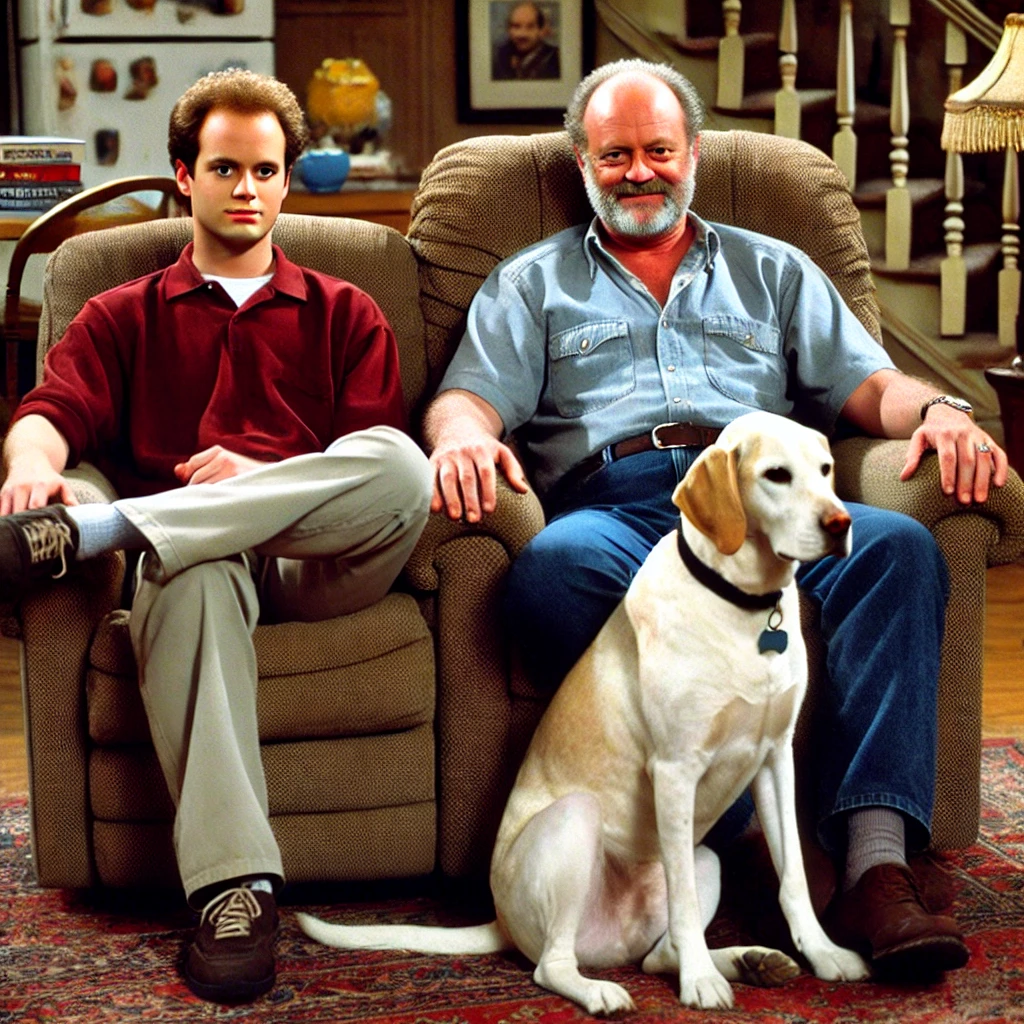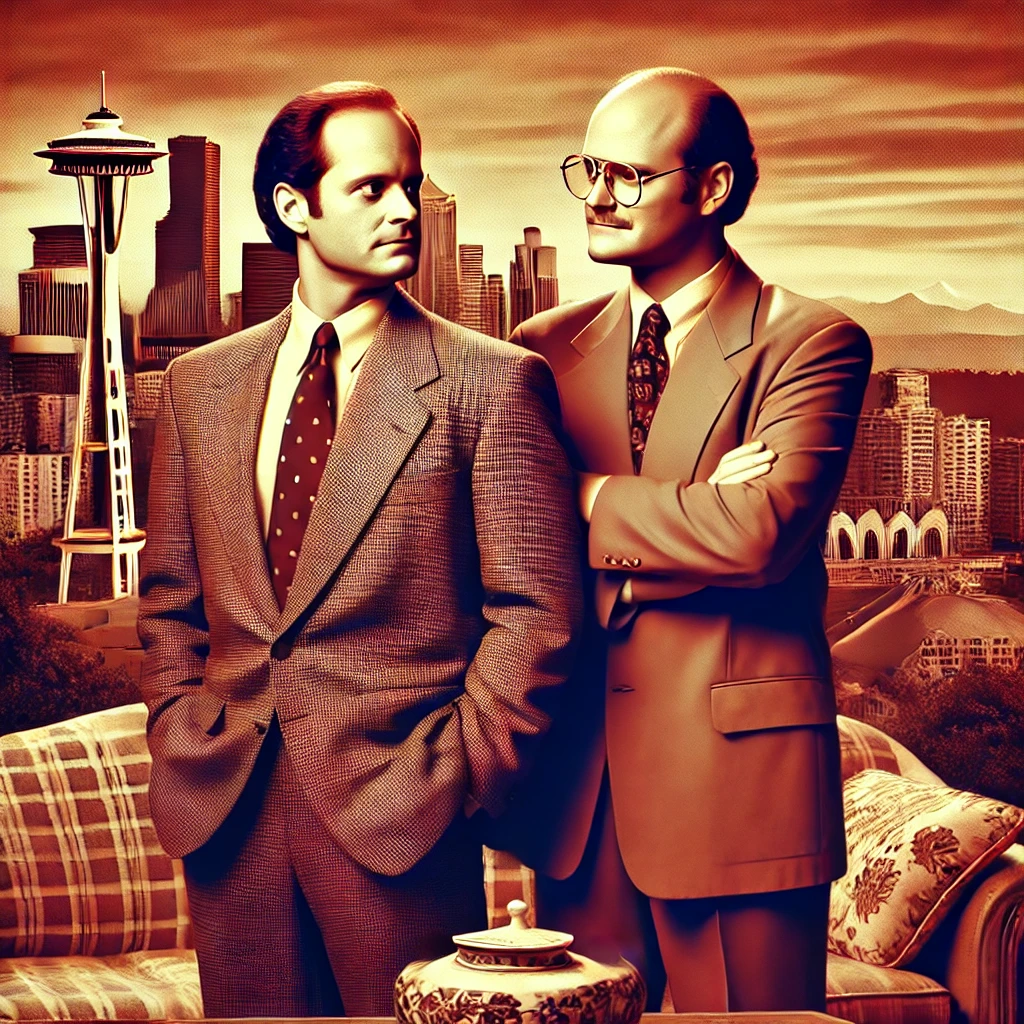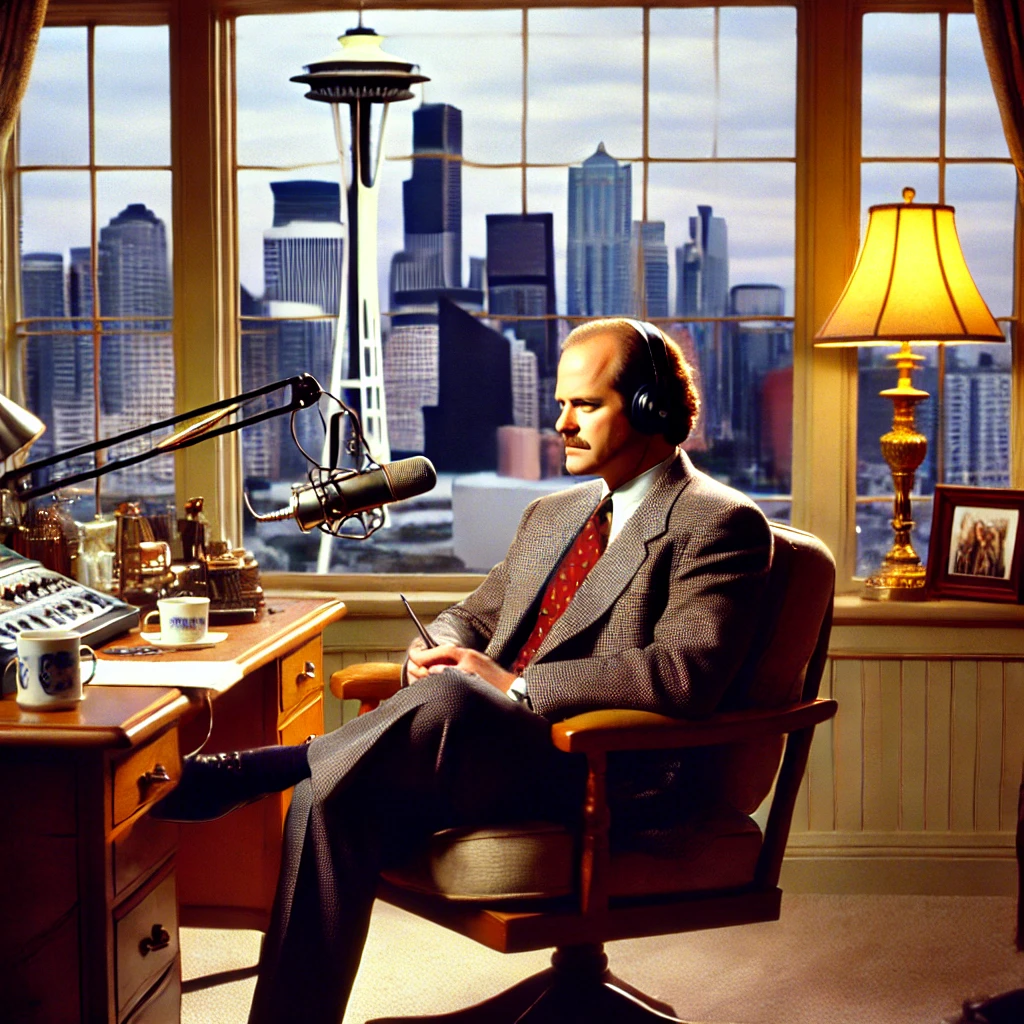On September 16, 1993, Frasier premiered on NBC, marking the debut of one of the most acclaimed sitcoms of the late 20th century. This spin-off of the popular show Cheers featured Kelsey Grammer reprising his role as Dr. Frasier Crane, a psychiatrist who relocates to Seattle to start a new chapter in his life. Frasier quickly became a beloved staple of American television, renowned for its sharp wit, complex characters, and exploration of modern life.
The Genesis of Frasier
Frasier emerged as a spin-off from Cheers, a sitcom that had enjoyed immense popularity throughout the 1980s. The character of Dr. Frasier Crane, played by Kelsey Grammer, was introduced on Cheers as a pompous but endearing psychiatrist who frequented the show’s titular bar. The character proved to be a fan favorite, prompting the creators to consider a spin-off that would explore Frasier’s life beyond the confines of the bar.
The concept for Frasier centered on the character’s move from Boston to Seattle, where he would establish a new career as a radio talk-show host. This transition allowed the show to explore new themes and settings, providing a fresh backdrop for Frasier’s character and his interactions. The decision to base the show in Seattle also introduced a new cast of characters and a different atmosphere, distinguishing Frasier from its predecessor.
The Show’s Premise and Characters
Frasier followed Dr. Frasier Crane as he returned to his hometown of Seattle to start anew after his marriage ended. Frasier takes a job as a radio psychiatrist, using his show to offer advice to callers while navigating his own personal challenges. The show’s premise allowed for a unique blend of humor and psychological insight, with Frasier’s professional life intersecting with his personal struggles.
Key characters included Frasier’s father, Martin Crane, played by John Mahoney, who was a retired police officer with a no-nonsense attitude. Martin’s caretaker, Daphne Moon, portrayed by Jane Leeves, added a touch of charm and eccentricity to the show. Frasier’s brother, Niles Crane, played by David Hyde Pierce, was a prominent figure in the series, contributing to its dynamic with his own quirks and professional rivalry. These characters, along with others, created a rich tapestry that contributed to the show’s success.

Critical Acclaim and Popularity
Frasier quickly gained critical acclaim for its sophisticated writing, well-developed characters, and clever humor. The show’s ability to blend intellectual comedy with relatable personal issues resonated with audiences and critics alike. Its writing staff, including notable talents like David Angell, Peter Casey, and David Lee, played a crucial role in crafting the show’s sharp dialogue and engaging storylines.
The series’ popularity was reflected in its impressive awards haul, including multiple Primetime Emmy Awards. Frasier won the Emmy for Outstanding Comedy Series five consecutive times, a testament to its consistent quality and widespread appeal. The show’s success was not limited to awards; it also garnered strong viewership and became a cultural touchstone of the 1990s and early 2000s.
The Evolution of the Show
As Frasier progressed through its run, it continued to evolve, exploring new themes and character dynamics. The show delved into Frasier’s romantic relationships, his complex family dynamics, and his professional challenges. The evolving nature of the characters kept the show fresh and engaging, allowing it to maintain its popularity over the years.
The series also addressed contemporary issues, from work-life balance to family relationships, in a way that was both humorous and insightful. This ability to tackle relevant topics while maintaining its comedic edge contributed to the show’s lasting appeal.

The Show’s Impact on Television
Frasier left a significant mark on television, influencing subsequent sitcoms with its blend of intellectual humor and character-driven storytelling. The show’s success demonstrated that spin-offs could achieve success on their own terms, paving the way for other successful spin-offs and multi-generational television franchises.
The series’ focus on complex characters and sophisticated humor set a new standard for sitcoms, inspiring other shows to adopt similar approaches. Frasier also highlighted the potential for character-driven comedies to achieve both critical and commercial success, influencing the landscape of American television.
Legacy and Cultural Impact
The legacy of Frasier extends beyond its original run, continuing to resonate with audiences through reruns and streaming platforms. The show’s clever writing and memorable characters have ensured its place in television history, making it a beloved classic for new generations of viewers.
Frasier also left an impact on its cast, with Kelsey Grammer and David Hyde Pierce achieving acclaim for their performances. The success of the series contributed to their continued prominence in the entertainment industry, showcasing their talents and solidifying their places as leading figures in television comedy.

Enduring Popularity and Revival
Despite concluding its original run in 2004, Frasier remains popular through syndication and digital streaming. The show’s enduring appeal is a testament to its well-crafted writing, relatable characters, and memorable moments. Its ability to entertain and engage audiences over time underscores the timeless quality of its humor and storytelling.
The show’s legacy has prompted discussions about potential revivals and reunions, reflecting the ongoing interest in its characters and themes. The enduring popularity of Frasier highlights its significance in television history and its continued relevance in popular culture.
Lasting Impact
Frasier stands as a quintessential example of the successful sitcom, blending intellectual humor with relatable character-driven stories. Its achievements in comedy, character development, and storytelling have left a lasting impact on television, setting a high bar for subsequent shows.
The series’ ability to address contemporary issues while maintaining its comedic essence demonstrates its relevance and enduring appeal. Frasier remains a significant part of television history, celebrated for its contribution to the genre and its influence on future sitcoms.
